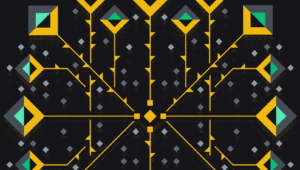Industry standards

The crucial role of Public Key Infrastructure (PKI) in blockchain and Web3
In today’s digital age, security and privacy are of utmost importance. The Public Key Infrastructure (PKI) is a fundamental technology that enables…

Tokenization: a fundamental technique for data security
Tokenization enables companies to protect sensitive data by replacing it with non-sensitive data that retains the original data’s essential information, but is…

Sharding in blockchain: improving scalability and efficiency
Blockchain technology has revolutionized the way we think about data storage and transfer, allowing for secure and transparent transactions without the need…

Computational integrity in blockchain
Blockchain technology has brought about a revolution in the way we handle data and transactions in various sectors, ranging from finance to…

Revolutionizing business with smart contracts
Smart contracts are computer programs that facilitate, verify, and execute the negotiation and performance of contracts without the need for intermediaries such…

What is Distributed Ledger Technology?
Distributed Ledger Technology (DLT) is an emerging field that has the potential to revolutionize the way we store and transfer data. DLT…

Proof-of-Stake and Delegated Proof-of-Stake for beginners
Blockchain technology has revolutionized the way we store and transfer data, enabling secure and transparent transactions without the need for intermediaries. One…

Understanding the basics of blockchain: Merkle trees
Merkle trees, also known as hash trees, are a fundamental concept in computer science that can be used to verify data integrity…

Dapps: a comprehensive guide to decentralized applications
Decentralized applications (dapps) are a new type of software that runs on a blockchain network. Unlike traditional apps that are controlled by…

Formal Methods: Correctness in Blockchain Design
Formal methods use mathematical processes to pinpoint and test the components of a system, and the functionality of each of them. This…